Winter capstone projects focus on addressing food security at UW
By Mariah Rubin and Lori Tiede
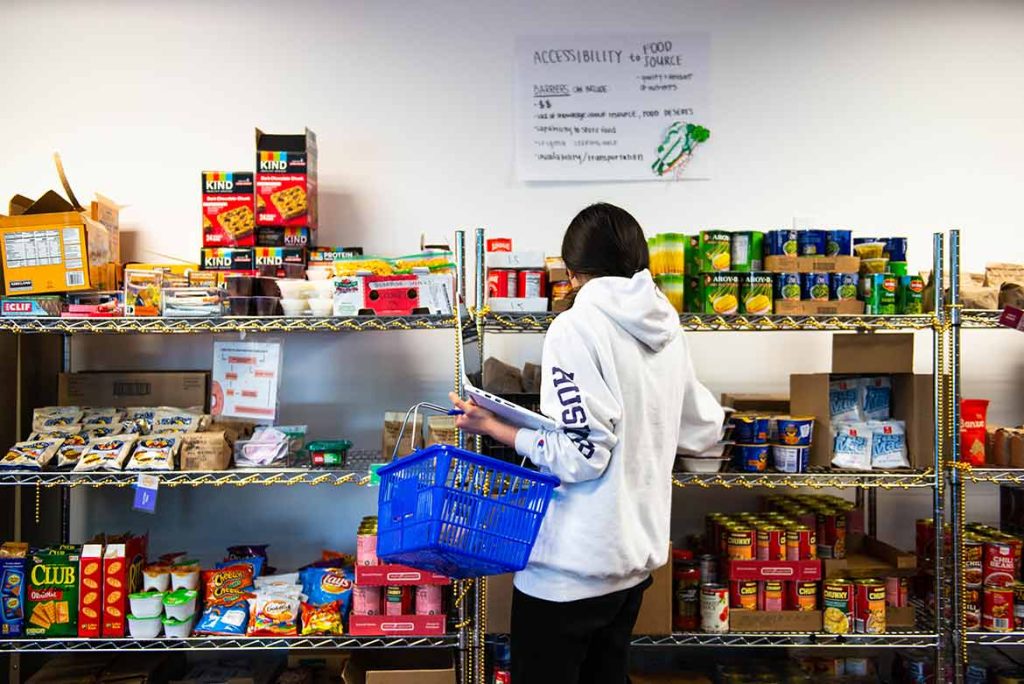
In winter quarter 2024, University of Washington students studying Food Systems, Nutrition, and Health focused on capstone projects that aimed to better understand and address the critical needs facing college students with food insecurity, with a primary focus on the UW Seattle campus.
Six student teams partnered with the UW Food Pantry choosing a variety of projects to help amplify Pantry resources, visibility, and its impact. The Food Pantry has recorded an unprecedented rise in the number of people utilizing its resources for 2023-24, and has experienced a growing demand in previous years.
Other student teams provided support in the development of a unique Photovoice project (PDF) planned to launch in autumn 2024 which will capture UW students’ experience with food insecurity through photos and focus groups.
Three student teams focused their projects beyond campus and went to Olympia, Washington as part of a collaboration with WashPIRG and its campaign to mitigate hunger and homelessness through student action.
Student food insecurity on the rise: Some background
According to data published by the USDA, food insecurity exists on a spectrum, ranging from low to high barriers to access enough food and adequate nutrition for an active and healthy life. For college students, food insecurity can impact academic performance and health in many ways, including impacts on class attendance, ability to focus and learn, physical wellbeing, mental health, and stress.
College food insecurity has been a growing concern nationally for at least the last decade. Researchers produced a report in 2019 studying housing and food insecurity among UW students across all three campuses and found that 26% of students were experiencing some level of food insecurity. In 2021, another report from Iowa State University illustrated how the pandemic exacerbated and changed the landscape of available campus resources addressing food security.
Post-pandemic, many of the emergency resource programs and funding opportunities ended despite the ongoing need, and in some cases, increasing need from students. In an article in 2023, The Seattle Times highlighted how student food insecurity at UW and beyond continues to be an under-acknowledged yet escalating problem on college campuses.
Food Systems students work with UW Food Pantry
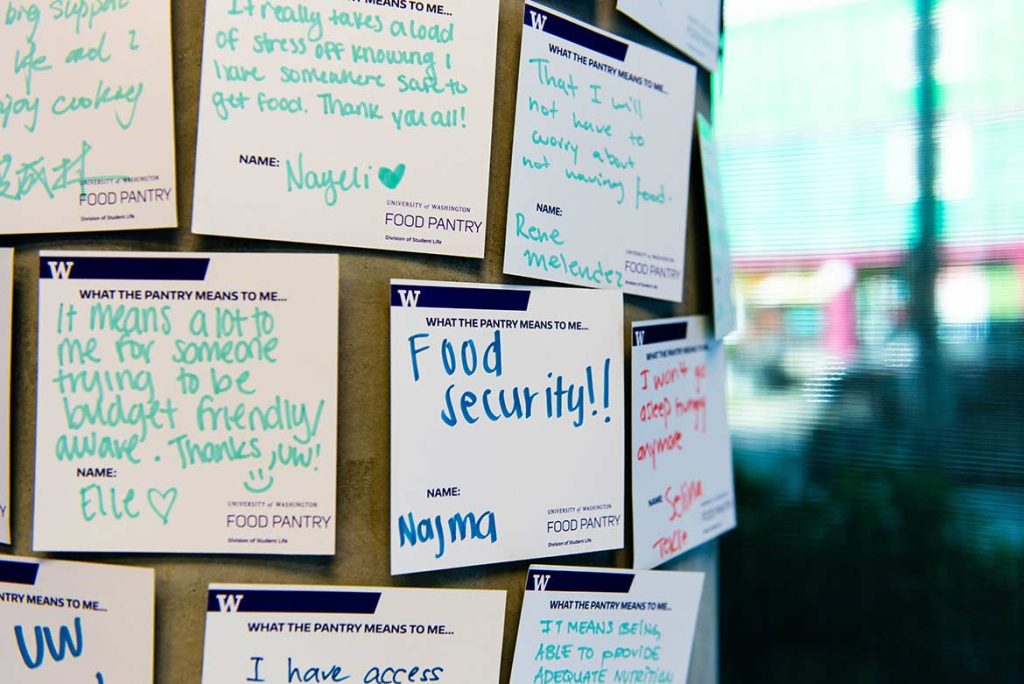
With guidance of UW Food Pantry staff, student teams delved into supporting the Pantry on many levels with the hope to create lasting change.
Food recovery support
Two teams worked with Lilly Durham, the food recovery coordinator at UW Food Pantry to improve food recovery and gleaning processes and developed a “partnership-building framework” for the Pantry.
Materials developed included an updated food gleaning guide featuring one-page visual references for quickly answering common questions and concerns during the food gleaning process.
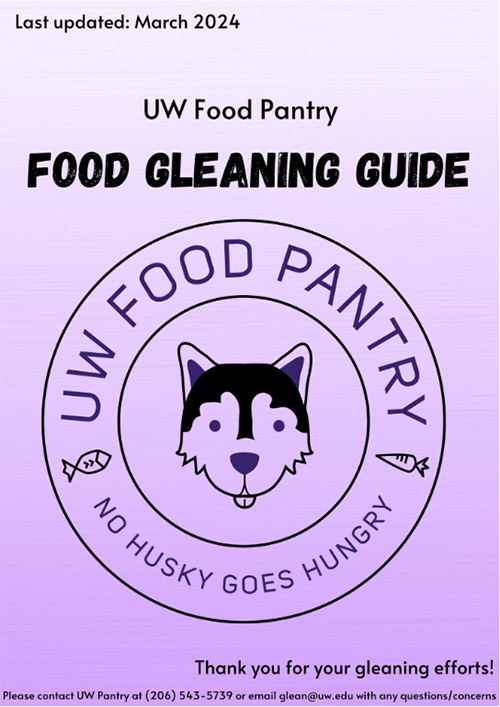
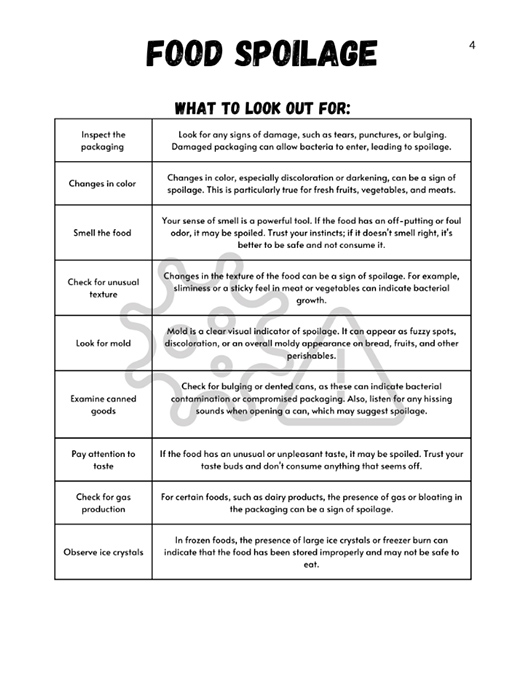
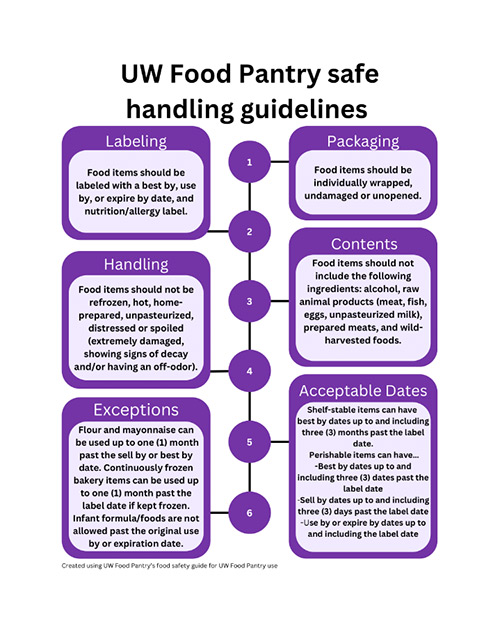
Excerpts represent the work of two different project teams working with the UW Food Pantry to streamline the food gleaning process.
This work will support the Pantry in sourcing more food for students and creating more efficient practices.
Food security awareness
Two teams worked with Maggie O’Brien, the Pantry’s social media coordinator, on developing food security education materials. The teams developed educational materials including a multilingual e-pamphlet on food insecurity, social media content to expand the Pantry’s online presence, and culturally relevant recipes with food items at the Pantry that acknowledge Native Indigenous populations.
Reflecting on working with the Food Systems capstone students as a community partner, O’Brien said, “I think seeing how passionate other students are about food insecurity and working towards making long-term change on and off of campus was the best part about working with the food systems capstone. I also think that the social media posts alleviated a little bit of pressure for myself at the Pantry.”
Samples of Social Media Campaigns
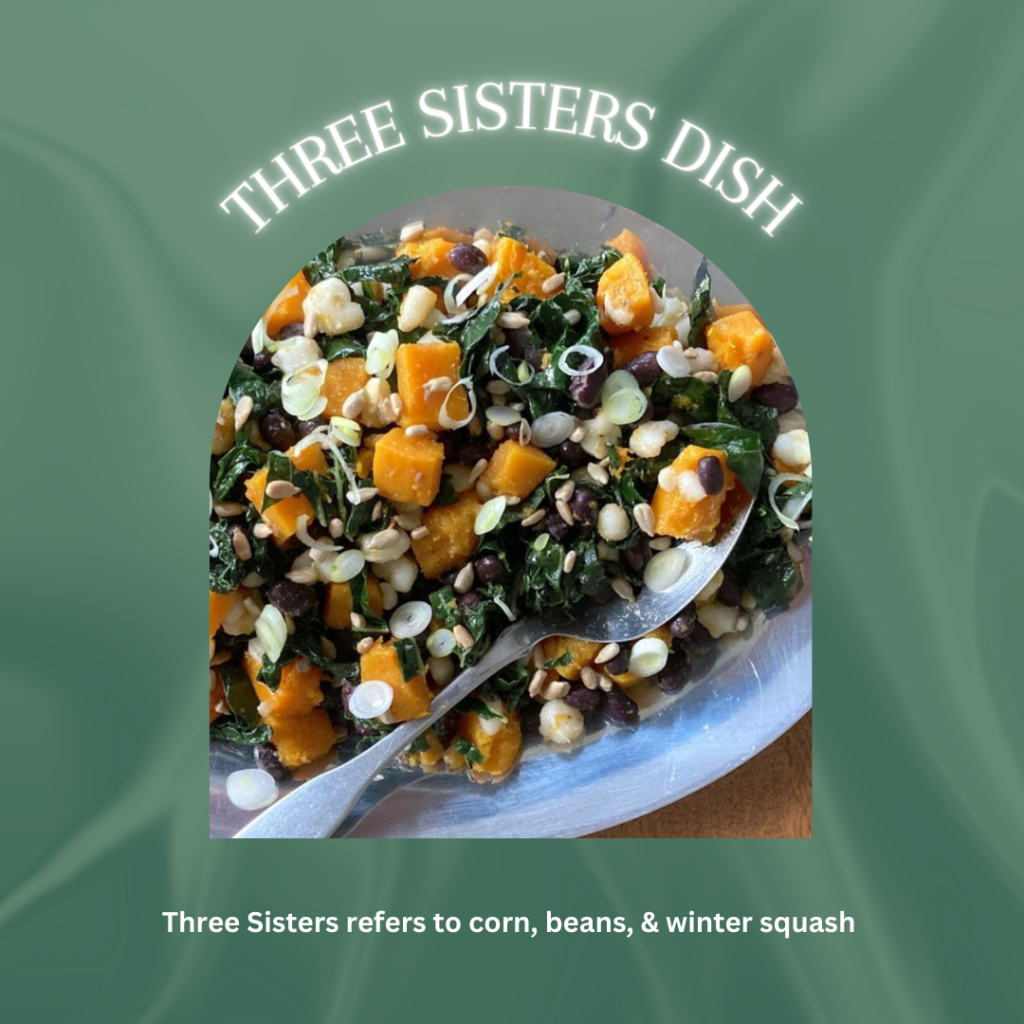
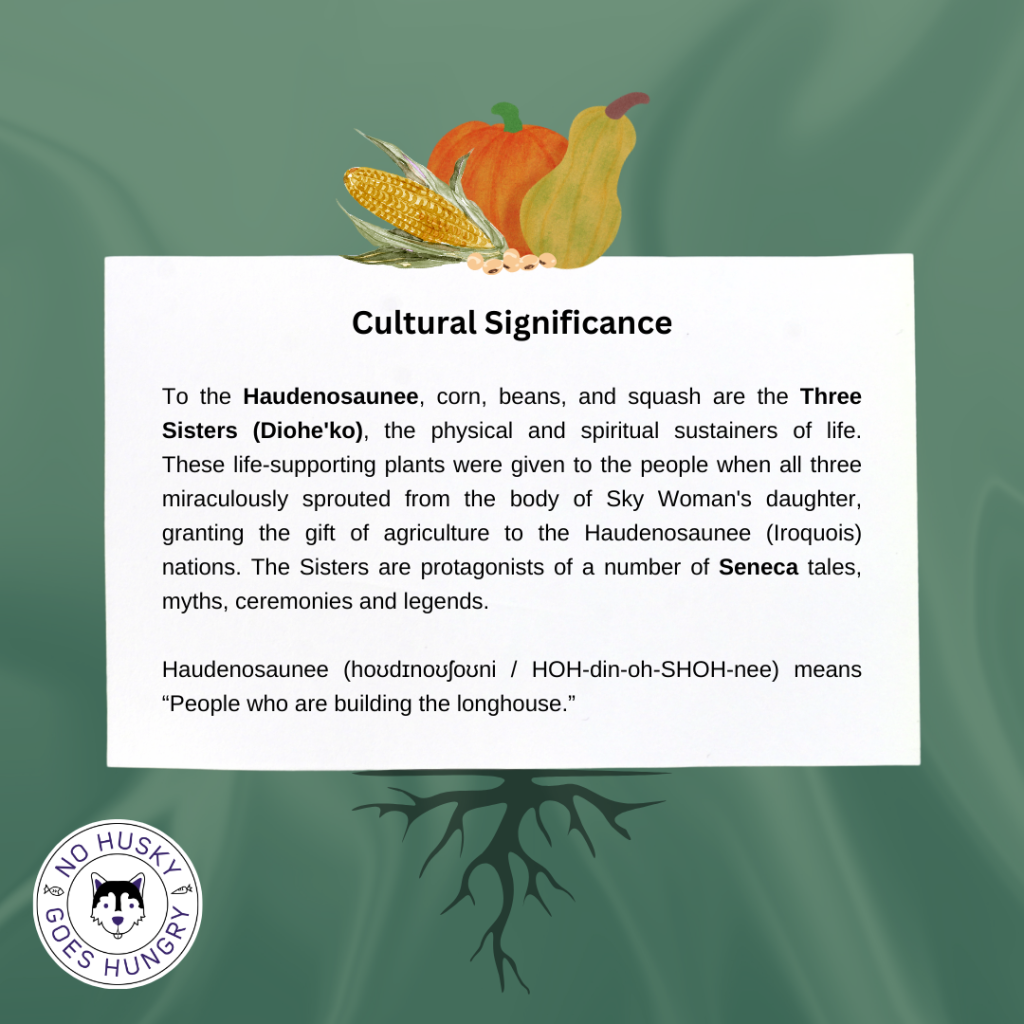
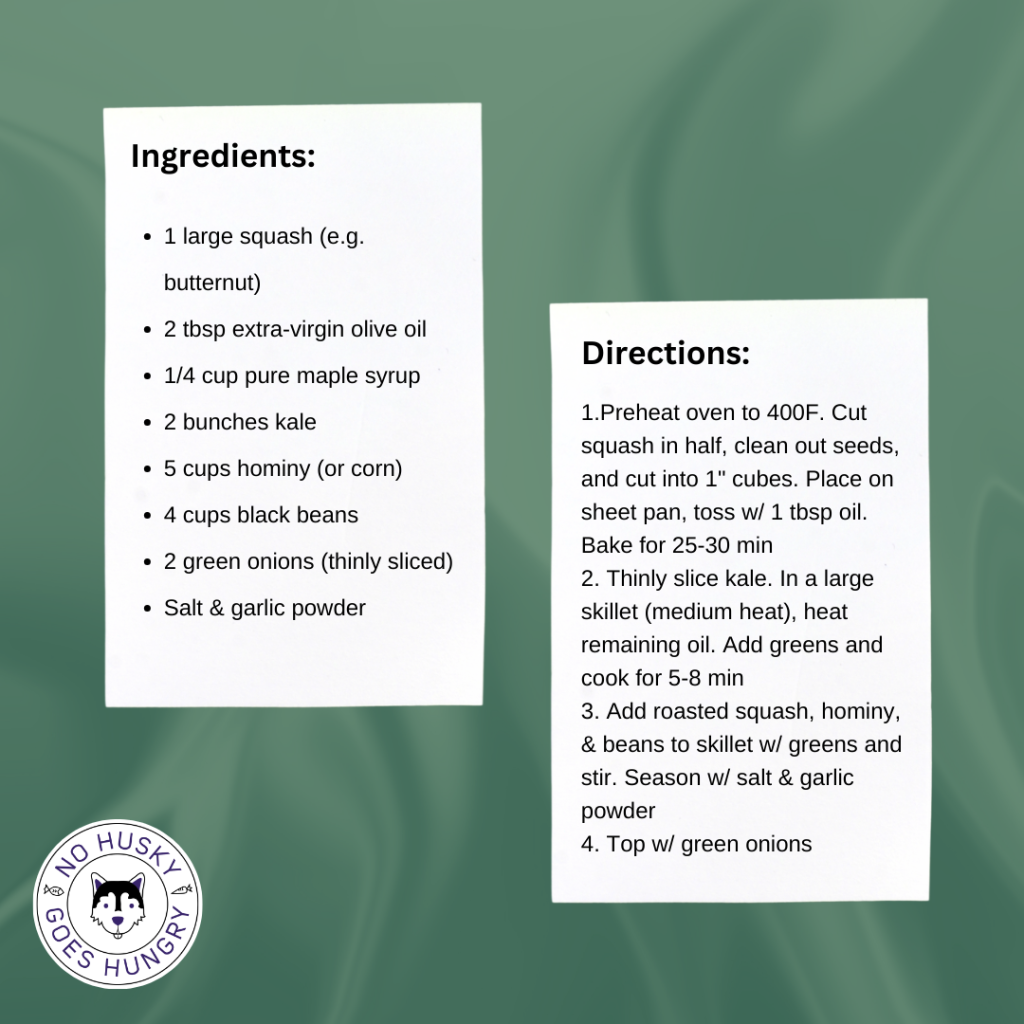


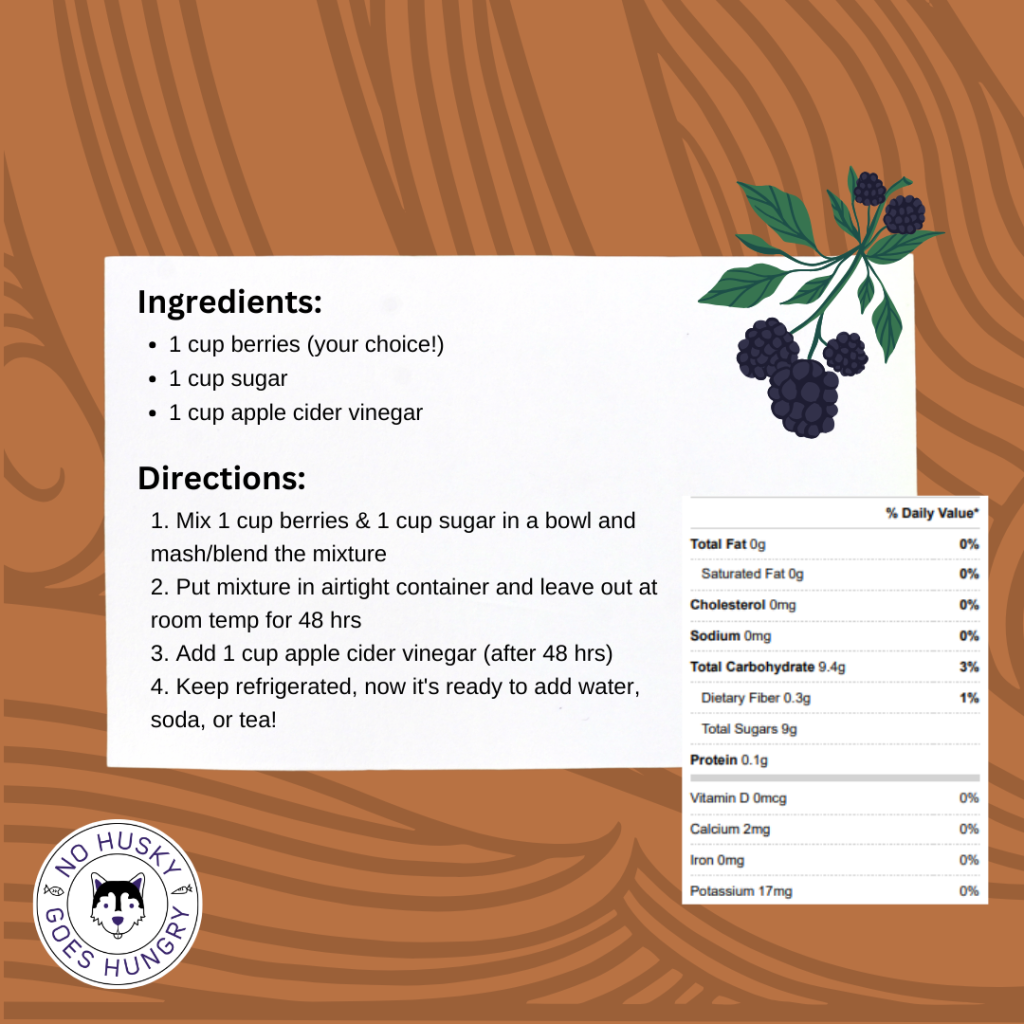
Reducing barriers to Food Pantry funding
On another front, two teams worked with Ellie Green to delve into the complicated world of funding opportunities which continues to be a barrier to providing more food for the community. One student team connected with universities across the country to learn more about successful funding structures. Another student team created an incredible comprehensive spreadsheet brimming with grant opportunities supporting the Pantry in navigating the funding landscape more efficiently.
The materials and resources created by UW Food Systems Capstone students will support the ongoing efforts of the UW Food Pantry to feed our campus community for years to come.
Campus food security advocacy with WashPIRG
Looking at food insecurity across Washington state, three student teams worked with Beatrice Raugei and McKenna Eggers from WashPIRG to lobby for support to combat student food insecurity in Olympia at this past legislative session.
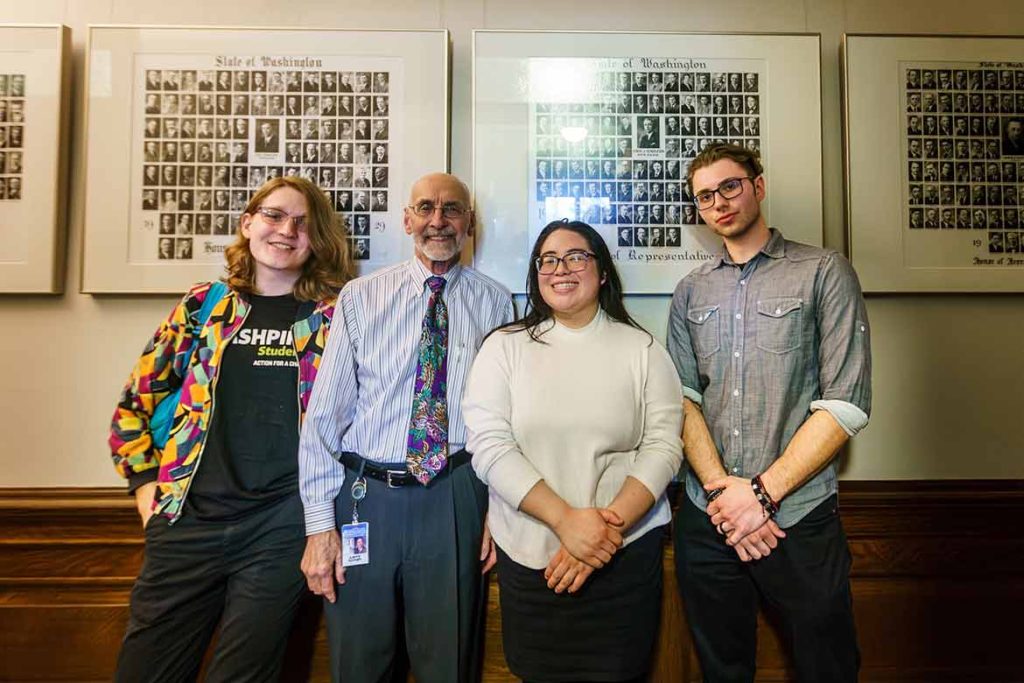
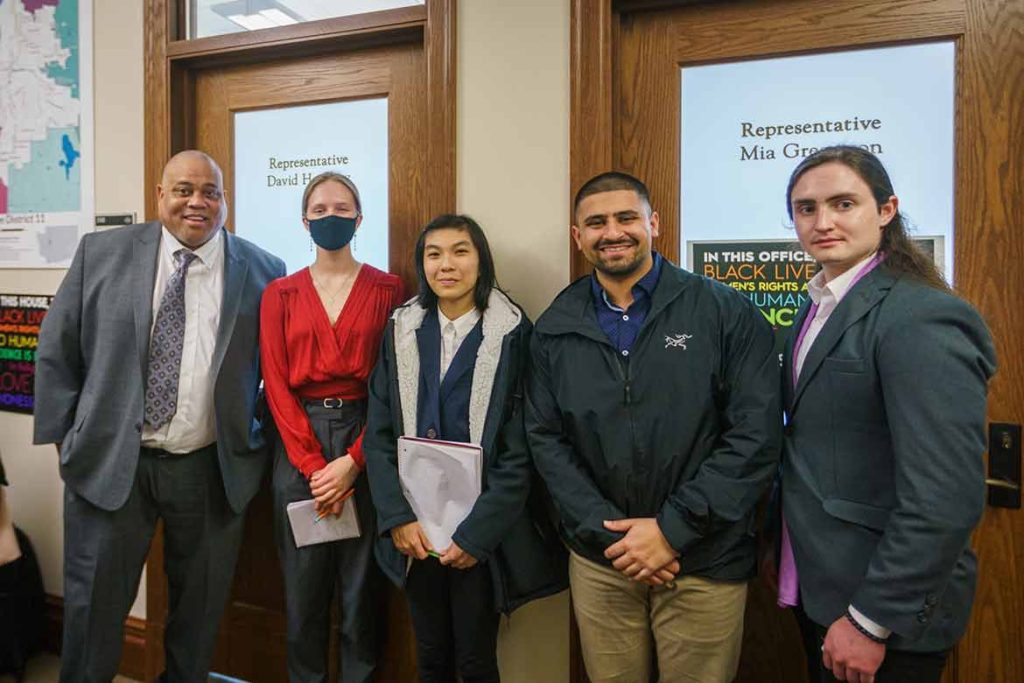
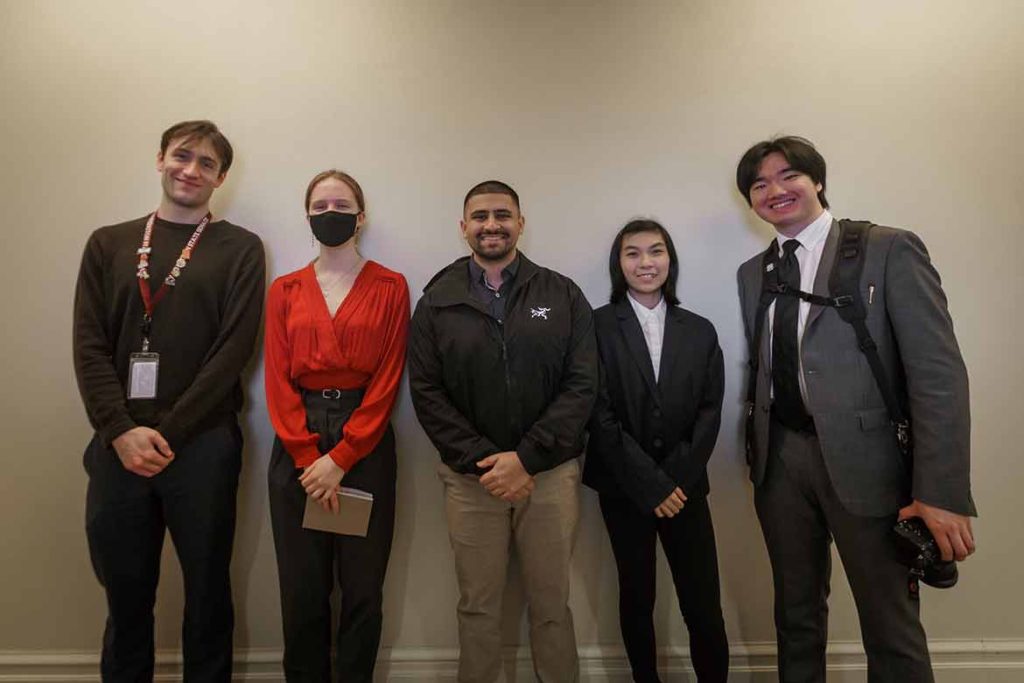
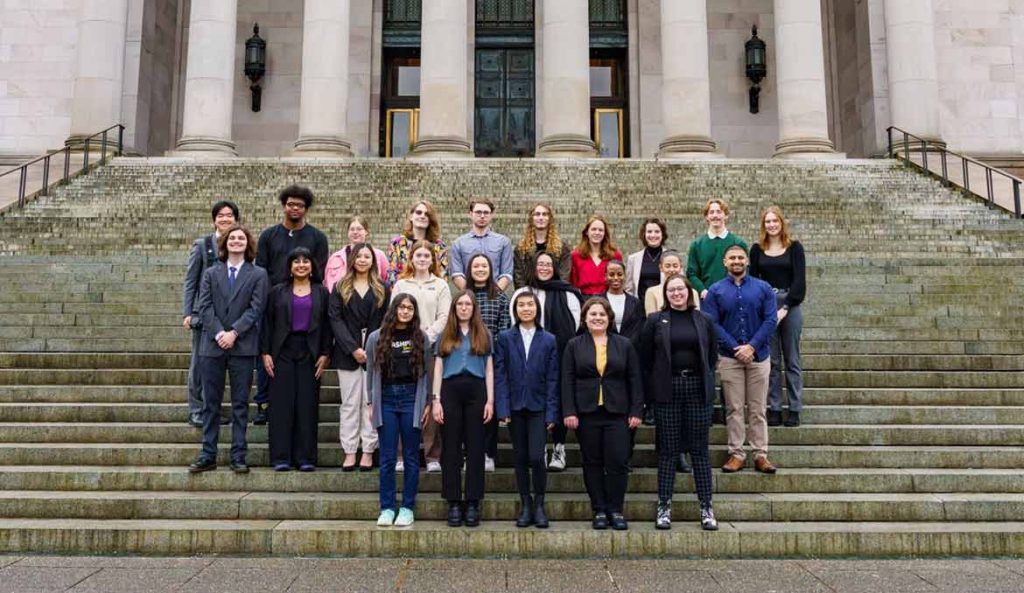
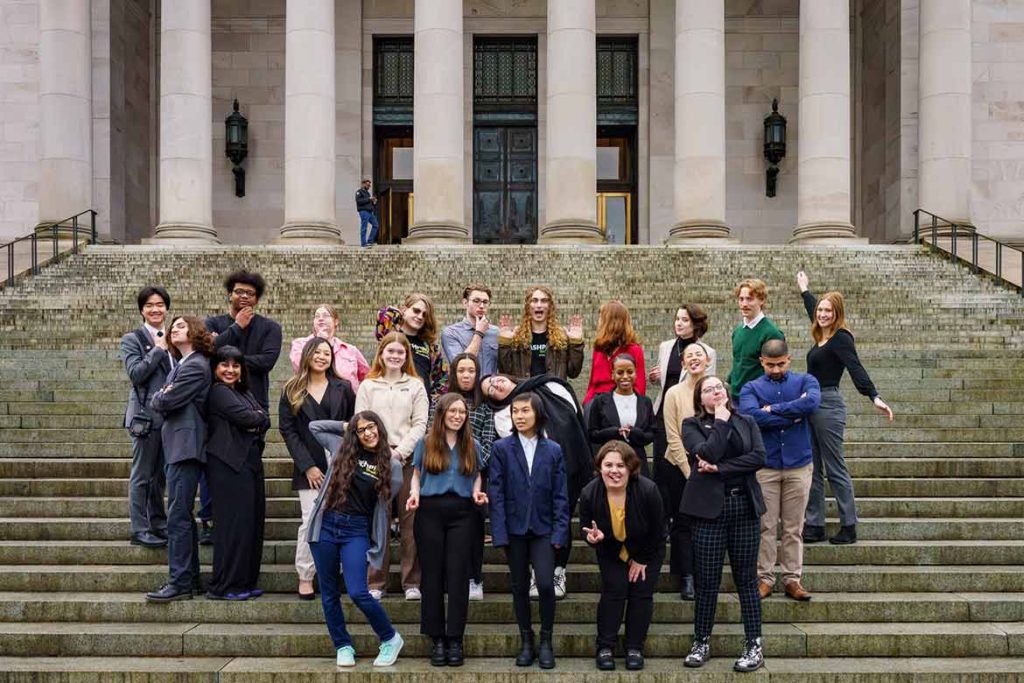
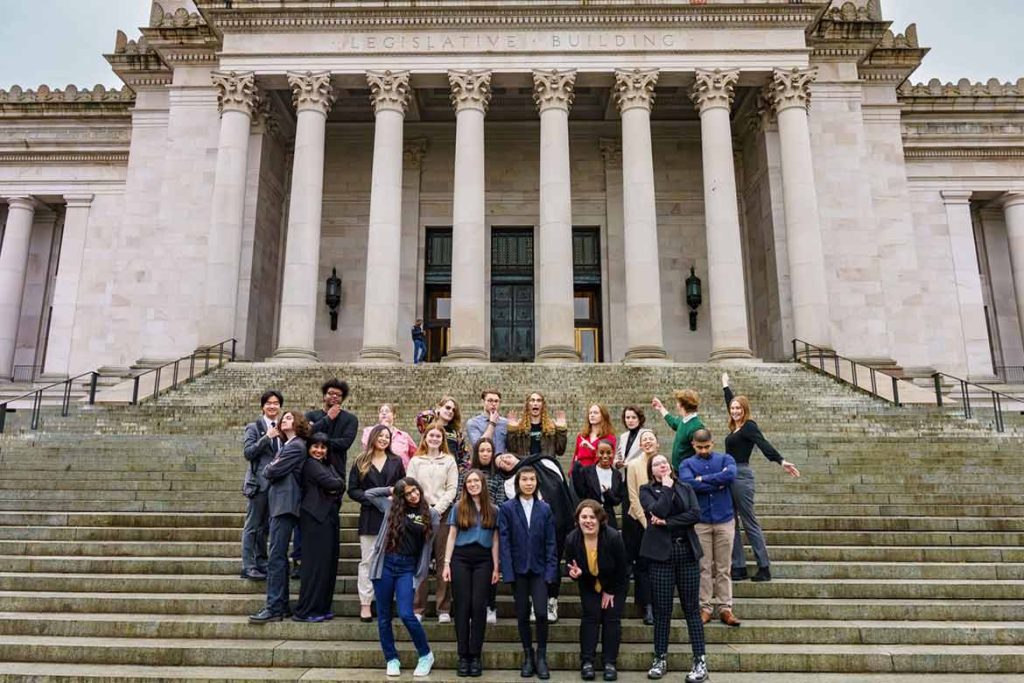
Students prepared for WashPIRG’s Lobby Day in Olympia by analyzing legislation, researching policies to support student food security across the country and around the world, and developing materials to lobby.
Capturing UW students’ experience with food insecurity
Two student capstone teams helped provide support to a Photovoice project (PDF) aimed at capturing UW students’ experiences with food insecurity through photos and focus groups. The project is led by Michelle Averill, interim director of the Food Systems, Nutrition, and Health Program and an associate teaching professor in the program. Photovoice is a powerful qualitative research method that gathers photos and narratives from community members to amplify their voices and ultimately take actionable steps.
As part of the Photovoice project, the teams supported the development of an Institutional Review Board (IRB) application required to submit the project, created an extensive annotated bibliography, and developed a best practices guide for project submissions. The Photovoice project is expected to begin in autumn 2024 and will build upon the work of capstone students this winter.
“These students did such great work and have laid the foundation forward with a Photovoice project allowing us to understand the contextual and nuanced experiences of students on our campus,” said Averill.
You can learn more about student team projects in our student projects archive.
NUTR 493 Food Systems Capstone is taught by Yona Sipos, associate teaching professor in the Food Systems, Nutrition, and Health program and Environmental and Occupational Health Sciences. Mariah Rubin serves as the Graduate Student Appointment (GSA) for the course supporting experimental learning. Sarah Garcia served as teaching assistant for winter 2024.
May 13, 2024